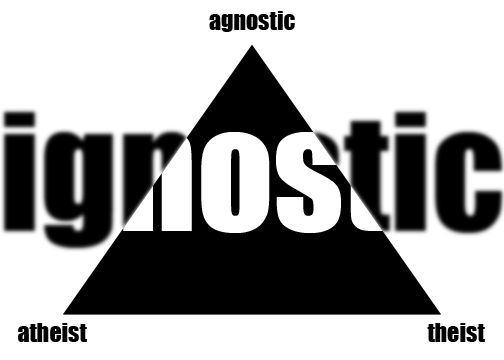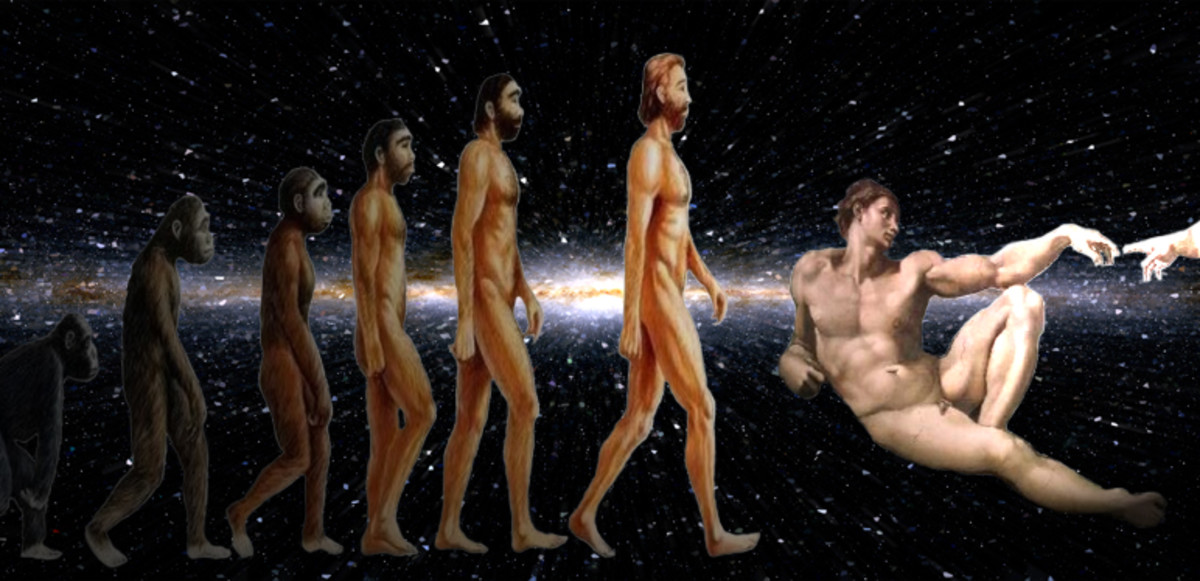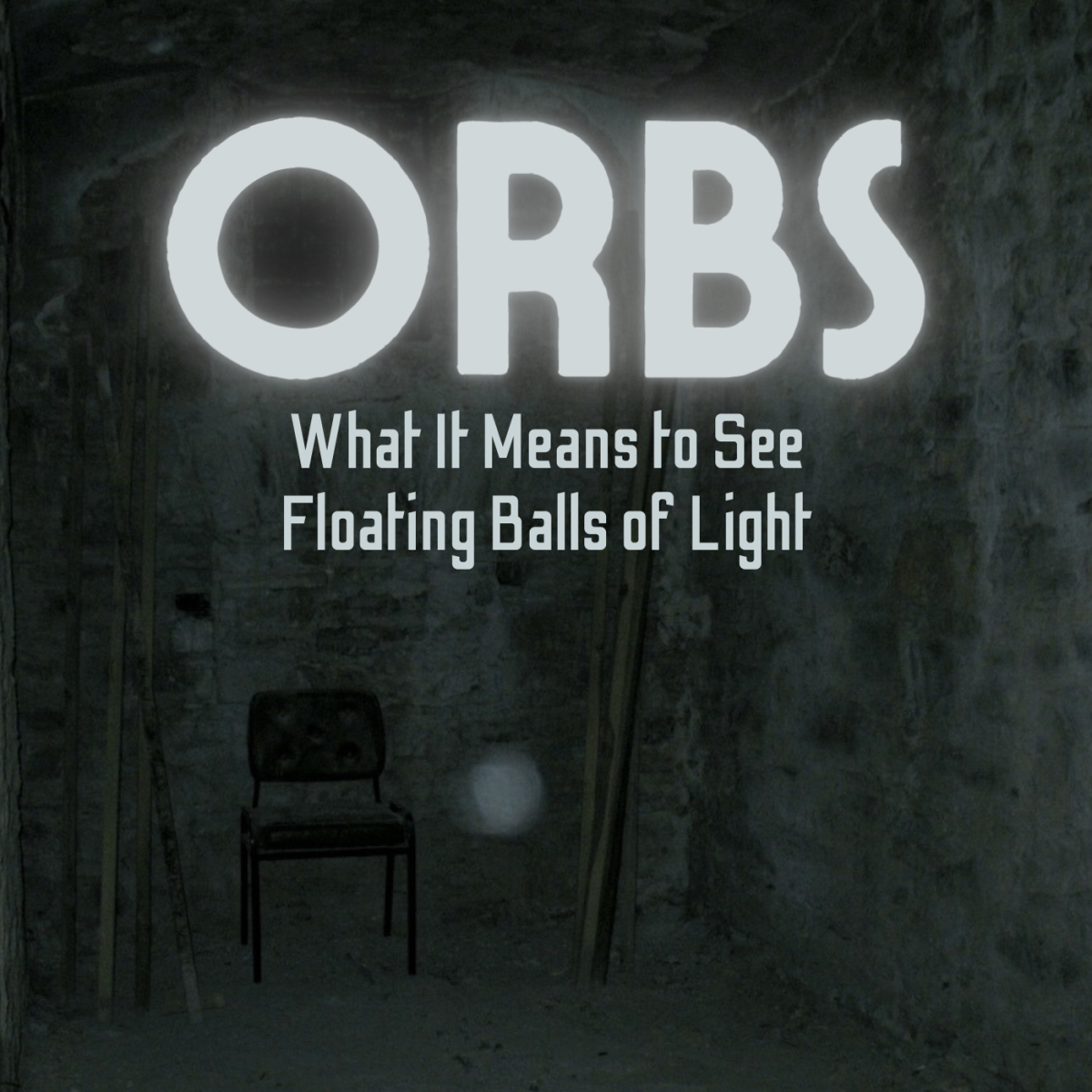Theism vs. Atheism and Humanity’s Descent into Meaninglessness
Or, why all arguments about the existence of God are completely absurd

Here on Hubpages it is hard to ignore the endless verbal war being waged, in both hubs and forums, between theists and atheists. As much as I can relate to how people get off on this sort of thing (been there, done that), I try to stay out of it, as it is a complete waste of time: no different—with no more import, value, or relevance to reality—than an argument about the correct pronunciation of the word ‘tomato’.
So it is fair to ask why I would choose to dignify the humdrum with this essay.
Well, call me a fool (you wouldn’t be the first!) but I like to think that I might persuade some of you who may be inclined to enter the fray to abstain and make better use of your time. After all, every second counts, and the human world is facing some serious problems. The subject of the war of words between theists and atheists (the question of the existence of God) is not one of them. It is nevertheless a symptom of the underlying cause of those problems, and a time-sucking distraction that diverts attention from where it would be better directed.
All arguments are based on semantics, in that the effective use of language for communication depends on mutually agreed-upon definitions. If we want to communicate meaningfully about the subject of ‘God’ then we need to define the terms of engagement. So, let’s start with some definitions:
A theist is anyone who believes that ‘God exists’ (or ‘gods exist’), whereas an atheist is anyone who does not.
That much is easy enough. But getting beyond that is not so easy. In fact, I would venture that it is all but impossible.
For in order to use language to evaluate the truth of the statement that ‘God exists’ you first have to agree on a definition of ‘God’. That is far from easy, because as I have argued elsewhere, ‘God’, to the extent that the word is meaningful at all, is entirely subjective, and refractory to the semantic literalism required for objective discourse. Beyond the poetically evocative ambiguity of metaphor (e.g., as in the word ‘divine’), ‘God’ is semantically and thus scientifically intractable.
But that does not mean that the statement ‘God exists’ is not true. The mere fact that something is scientifically intractable does not logically imply that it is not true, only that its truth cannot be ascertained by science.
Many atheists will correctly counter that science is perfectly capable of explaining human religious experience and the predilection for belief in ‘God’. But the key word here is explaining, which is essentially synonymous with rationalizing. We can certainly rationalize religious experience in terms of the neural mechanisms in the human brain that are required to make it to happen. But so what? How does that make the experience any less valid? As Iain McGilchrist points out in his remarkable book The Master and his Emissary: The Divided Brain and the Making of the Western World, such rationalizations are akin to explaining a joke, in that they drain all that is vital (humor in the case of the joke) from the experience itself. To explain subjective experience is to explain it away, making it easy to pretend that it is not real.
Now it’s easy enough to dispute the validity of literalist definitions of ‘God’ (e.g., an invisible, all-powerful, man-like being in the sky). But to do so is no different than arguing with someone who believes in the literal existence of fairies or Santa Claus, or for that matter, with a florid schizophrenic who earnestly believes that their auditory hallucinations are actual voices. Why bother?—unless of course you get your jollies wrestling straw men (a favorite pastime of many, to be sure). While there are theists who conceive God in such literalistic ways, I don’t know any (although I do know great many theists), and I would guess that most do not. (There are of course untold many theists who stake their beliefs on literal interpretations of scripture, a psychological problem to which I will return below.)
So given the nontrivial problem of defining ‘God’ one would have to conclude that many of the arguments between theists and atheists either are meaningless battles fought by straw-man proxy, or amount to apples being judged as oranges and vice versa. But the problem doesn’t end there, because we have not yet defined ‘exists’. And unfortunately (or perhaps fortunately, for those who enjoy philosophy) it turns out that that is not much easier than defining ‘God’.
In fact, lengthy philosophical treatises have been written on the subject (known as ontology), so I won’t presume to attempt a definition here, except to say that ‘existence’ is not anything that can be meaningfully divorced from ‘relationship’, a point to which I will return in a moment. Beyond that suffice it to say that existence, like ‘God’, may be intuitively obvious, but it is not something with enough semantic tractability to ever be fully and definitively resolved by metaphysics, much less by science.
And the same can even be said for ‘truth’. Truth, as much as beauty, lies entirely in the eye of the beholder. That is not by any means to say that truth is relative—obviously it is not—only that there are many (perhaps infinitely many) different truths, discernment of which requires many (perhaps infinitely many) different relational perspectives, including the ostensibly objective one provided by science.
Moreover, truth is not synonymous with literal truth, because human language is far more limited than the world that it represents. Some truths can only be approached metaphorically and never ‘pinned down’.
On this point I expect I may have lost you, as understanding what I am saying requires an insight lost on many (perhaps even a majority of) people in the modern world: that everything we know, and even truth itself, comes to us through the development of relationships that transcend linguistics. To see what I mean just think about how much of your relationship with a loved one is communicated wordlessly by body language. Human knowledge accrues via the relationship that develops between human beings and the world (beginning developmentally with the relationship with our mother), so whatever we know (and hence think) about ‘God’, ‘existence’, and ‘truth’ is completely dependent on that relationship.
In other words, what you know, what you think, and what you think you know all depend entirely on how you relate to the world. For human beings, that depends in large part (social creatures that we are) on interactions with other human beings, which in turn depends on language.
And that brings us to the crux of the problem.
To begin to see the absurdity of the argument between theists and atheists, consider how it would appear to someone who has never been exposed to traditional Western conceptions of ‘God’—for example, an indigenous hunter-gatherer of the Amazon jungle. To her the arguments on these pages would be completely meaningless (even if they could be translated to her native language), having absolutely no bearing on her relationship with the living world—whether or not that which theists refer to as ‘God’ was integral to that relationship.
In fact, I would think that that would be true for any self-respecting theist—that is, they would find arguing with atheists to be a tedious foray into meaninglessness. What then can we make of the fact that so many theists engage in such arguments? I can only conclude that the relationship upon which they base their faith is not particularly strong, and perhaps nonexistent.
What then motivates the atheists who vociferously dispute the existence of ‘God’? We have established that science cannot help their case. All anyone really has is their own experience, their own relationship with the world, which has no better lock on ‘truth’ than does that of anyone else. So it appears to me that the atheists enter the fray for the same reason as do the theists—that is, their relationship with the world is tenuous, so they seek to shore it up with overconfident certainty.
It comes down to this: how can anyone presume to know the truth or falsehood of what anyone else means by the assertion ‘God exists’? I submit that if ‘God’ is not defined in any literal sense (and how can ‘it’ be?), then the only possible way to approach the statement ‘God exists’ are through committed faith in a particular way of being (be it theistic or atheistic) in a relationship with the world, or alternatively, through noncommittal agnosticism. If your faith is strong, there is no need to argue; and the same is true if you are noncommittal.
What appears to be lost on both sides of the argument is the fact that in linguistics, all meaning ultimately extends from metaphor, as developed through narrative (mythology). The way human language confers insight into anything new is by using metaphor to draw attention to the similarities between that thing and some completely different thing that is already known. As Julian Jaynes pointed out, human consciousness is built on our facility for using words metaphorically. That is why poetry is the highest form of linguistic expression.
Many words that we now take to have literal meanings began as metaphors. Take the synonyms ‘understand’ and ‘comprehend’. Both began as metaphors—the former evoking the image of standing under (which used to mean ‘in the midst of’), the latter evoking the image of grabbing complete hold of (i.e. to ‘grasp’). If it weren’t for metaphors the meaning conferred by language would be significantly impoverished.
And that is exactly what happens when we use language—and as a result relate to each other and the world—too literally. This is the trap of linguistic thought. According to McGilchrist (op cit., pp 229-230):
“The existence of a system of thought dependent on language automatically devalues whatever cannot be expressed in language; the process of reasoning discounts whatever cannot be reached by reasoning. In everyday life we may be willing to accept the existence of a reality beyond language or rationality, but we do so because our mind as a whole can intuit that aspects of our experience lie beyond either of these closed systems. But in its own terms there is no way that language can break out of the world language creates—except by allowing language to go beyond itself in poetry; just as in its own terms rationality cannot break out of rationality, to an awareness of the necessity of something else, something other than itself, to underwrite its existence—except by following Gödel’s logic to its conclusion. Language in itself (to this extent the post-modern position is correct) can only refer to itself, and reason can only elaborate, ‘unpack’ the premises from which reason must begin, or that validates the process of reasoning itself—these premises, and the leap of faith in favour of reason, have to come from behind and beyond, from intuition or experience.
“Once the system is set up it operates like a hall of mirrors in which we are reflexively imprisoned. Leaps of faith from now on are strictly out of bounds. Yet it is only whatever can ‘leap’ beyond the world of language and reason that can break out of the imprisoning hall of mirrors and reconnect us with the lived world.” [Italics in original]
This is what has happened historically in our evolution to modernity, and is now epitomized by the argument between theists and atheists—an argument that amounts to a battle between literalists for control of a meaningless reality. Nihilism, the bane of modern human existence, stems directly from the impoverishment of meaning that comes of such literalism. For if existence is but a mechanism (as scientism would have you believe), it is intrinsically meaningless. Ironically, post-modernism was spawned by scientism. Theists of all stripes get this, and those driven by shaky faith to argue use it to their advantage. Atheists may correctly counter that we create our own meaning, but this rings hollow if the world is but a machine as many of them argue. On the other side, the absurd view that life is but a trial to determine whether your death will send you to heaven or hell, as religious literalists would have us believe, is also nihilistic, as evinced by the violence wrought by religious extremists everywhere.
So in conclusion, it appears to me that the psychological need for certainty is what underlies the absurdity of modern existence, which is epitomized by the meaningless argument between theists and atheists. Denials of the existence of ‘God’ based on nothing more than an inappropriate use of the results of science to interpret subjective experience are as nonsensical as denials of scientifically established facts (such as the fact of evolution) based on a literal reading of scripture. Both ways of thinking are linguistic traps, dead ends that drain meaning from existence instead of imbuing existence with meaning.
As always, whatever hope exists lies in younger generations. With any luck they will increasingly see through the absurdity of the literalist arguments between theists and atheists, and find a way to develop relationships built on meaningful dialog, not only among human beings, but with nature as well.








